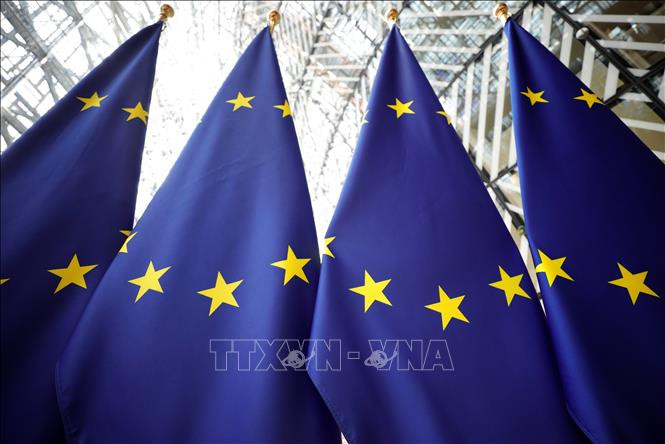The European Union (EU) will open membership talks with Ukraine on June 25, but the opening ceremony in Luxembourg will be more symbolic than substantive.

Substantive negotiations will only begin in earnest after the EU examines Ukraine's legal framework to assess all reforms needed to meet the bloc's standards, Reuters reported.
However, by marking the start of talks with Ukraine and then with neighbouring Moldova, the EU is sending a signal that both countries are on a path away from Russian influence and towards deeper integration with the West.
Ihor Zhovkva, foreign policy adviser to President Volodymyr Zelenskiy, welcomed the move and said the launch would boost the morale of Ukrainians.
“It is very important. The path to full membership that Ukraine deserves is certain,” said adviser Ihor.
Ukrainian Deputy Prime Minister Olga Stefanishyna will lead the Ukrainian delegation to the Accession Conference, which will begin at around 3:30 p.m. (8:30 p.m. on June 25, Vietnam time). Belgian Foreign Minister Hadja Lahbib will speak on behalf of the EU, as Belgium currently holds the bloc's rotating presidency.
The journey to EU membership is typically arduous for candidate countries, as they must reform to meet the EU's strict standards in many areas, from fighting corruption to adjusting customs regulations.
However, the conflict between Ukraine and Russia is now creating huge challenges for both Kiev and Brussels, raising questions about whether Ukraine can participate if part of its territory is controlled by Russia.
The prospect of Moldova's membership raises similar questions, albeit on a smaller scale, as Russian troops are stationed in the Transdniestria region.
The two countries will have to overcome not only technical and legal hurdles to become members, but also political barriers.
Candidate countries need approval from all 27 EU members. So far, Hungary – which maintains closer ties with Russia than other EU members and does not supply arms to Kiev – has held off on starting talks, citing concerns about discrimination against ethnic Hungarians in Ukraine.
Last week, Belgium reached the necessary consensus to approve the negotiating framework for Ukraine and Moldova, according to the AP news agency. For his part, Minister Janos Bóka said Hungary would aim to make the enlargement process “merit-based, objective and credible” and shift political attention from Ukraine to the Western Balkans.